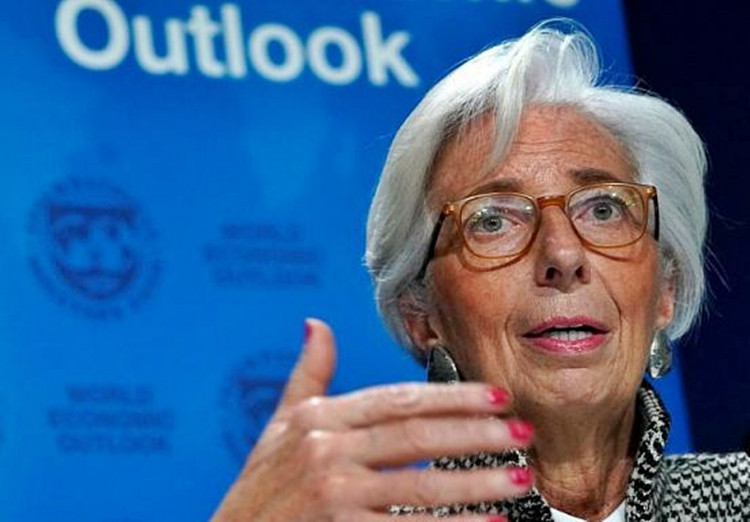Leaders of the world's richest countries; its largest corporations plus a bevy of billionaires meeting at Davos, Switzerland for the 2019 World Economic Forum heard the International Monetary Fund (IMF) confirm their worst fear -- the world economy is indeed slowing and will keep on decelerating if countries keep fighting over trade.
This condemnation places the blame for the global downturn squarely on president Donald Trump, who triggered the ongoing trade war by slapping heavy tariffs on steel and aluminum from Canada and Mexico in March 2018, and followed this up by imposing punitive tariffs on goods imported from China a few months later.
In its updated World Economic Outlook, the IMF lowered global estimates for growth in 2019 by 0.2 percentage points to 3.5%, its second downward revision.
The new report made it perfectly clear that the biggest risk to growth is the unresolved trade war between the United States and China. Another huge risk is the United Kingdom exiting the European Union without a deal, which is popularly called the "No-Deal Brexit."
"After two years of solid expansion, the world economy is growing more slowly than expected, and risks are rising," said IMF Managing Director Christine Lagarde in Davos.
This warning, however, does not mean a global recession is around the corner, according to Lagarde. But the risk of a sharper decline in global growth has certainly increased.
The IMF report noted that the economic slowdown in China is of great concern for world growth. It said pressure from tightening financial regulations and U.S. tariffs have the potential to cause a more dramatic contraction that might trigger abrupt, wide-reaching sell-offs in financial and commodity markets that place its trading partners, commodity exporters, and other emerging markets under pressure.
Yesterday, China said its economy grew 6.6% in 2018, the weakest annual performance since 1990.
As for the U.S. that triggered this slowdown, the IMF projects 2.5% growth in 2019, which will slow to 1.8% in 2020. In contrast, the Trump administration's forecasts growth above 3% for years to come.
To head off more damage from the slowing global economy, the IMF implores policymakers to recommit to the rules of the international trading system. It also wants policymakers to take meaningful action on climate change, and reinforce their social insurance systems to guard against joblessness caused by globalization and automation.
The Organization for Economic Cooperation and Development (OECD) a few ago released a report with similar conclusions.






